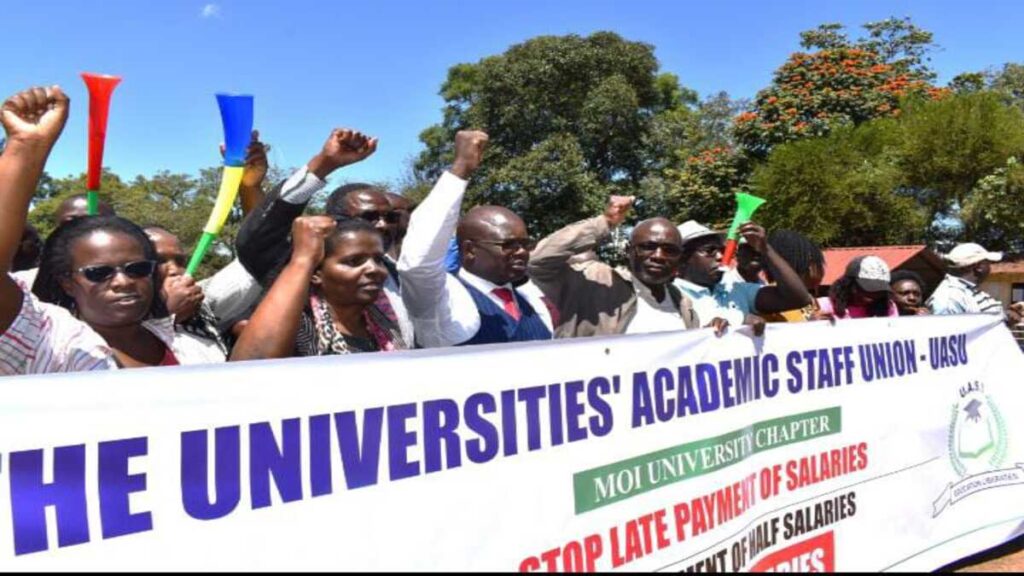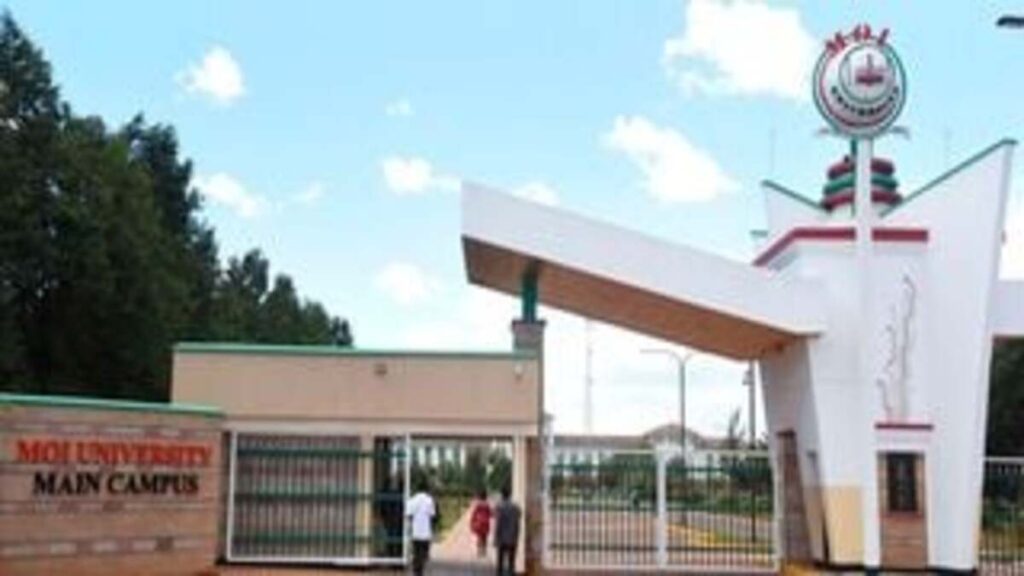Lecturers at Moi University have entered their third week of an indefinite strike, demanding the full payment of overdue salaries and adherence to the 2017-2021 Collective Bargaining Agreement (CBA). The situation has escalated significantly, with over 3,000 academic staff and casual workers participating in protests across Eldoret, expressing frustration over the university’s failure to meet their financial obligations.

Moi University lecturers participating in the strike demanding pay.Photo courtesy
The strike was initiated after lecturers received only half of their July salaries, leaving them without full compensation for their work. UASU Secretary-General Constantine Wesonga stated, “We are saying enough is enough. We will not resume learning until our issues are resolved”. This sentiment resonates deeply among the faculty, many of whom have not been paid for several months.

Moi University main campus: photo courtesy
The university’s management, led by Vice-Chancellor Isaac Kosgey, has faced criticism for its handling of the crisis. The lecturers argue that while other public universities have managed to pay their staff, Moi University has failed to comply with the CBA and has neglected to address pension deductions amounting to over KSh 4.1 billion [3][4]. UASU officials have warned that if these issues remain unresolved, strikes could spread to other institutions across the country.
In a recent meeting, the university council attempted to address the salary crisis but failed to provide a concrete payment plan. Council Chairman Humphrey Njoroge acknowledged the concerns but did not offer immediate solutions. “We called the meeting to consult with the union and agreed on a path forward,” he stated. However, this has done little to quell the unrest among lecturers who feel sidelined in negotiations.
The plight of casual workers has also come to light during this crisis. Many have not been paid for seven months and are struggling to support their families. One casual worker lamented, “We are unable to make ends meet. Our families are suffering”. This adds another layer of urgency to the lecturers’ demands as they seek comprehensive solutions that encompass all university staff.
As tensions rise, union leaders have reported intimidation tactics from university management aimed at coercing lecturers into returning to work. UASU officials claim they have received multiple memos demanding an end to the strike while simultaneously ignoring their grievances. This has only strengthened their resolve, with many stating they would rather continue protesting than return to work under such conditions.
The repercussions of this strike extend beyond faculty and staff; students are caught in the middle of this escalating crisis. Parents have been advised not to send their children back to school until the situation is resolved. The university’s closure has left thousands of students without classes for an extended period, jeopardizing their academic progress.
In light of these developments, local leaders and education stakeholders are calling for urgent intervention from the national government. UASU chapter secretary Wekesa Busolo urged President William Ruto to take action before the university collapses under financial strain. The situation at Moi University reflects broader systemic issues within Kenya’s higher education funding model, raising concerns about governance and accountability.
As it stands, Moi University remains closed indefinitely, with no clear resolution in sight. The lecturers have vowed to continue their strike until they receive full payment of their salaries and a commitment from management to uphold their contractual agreements. The future of education at Moi University hangs in the balance as both sides remain entrenched in their positions.



















